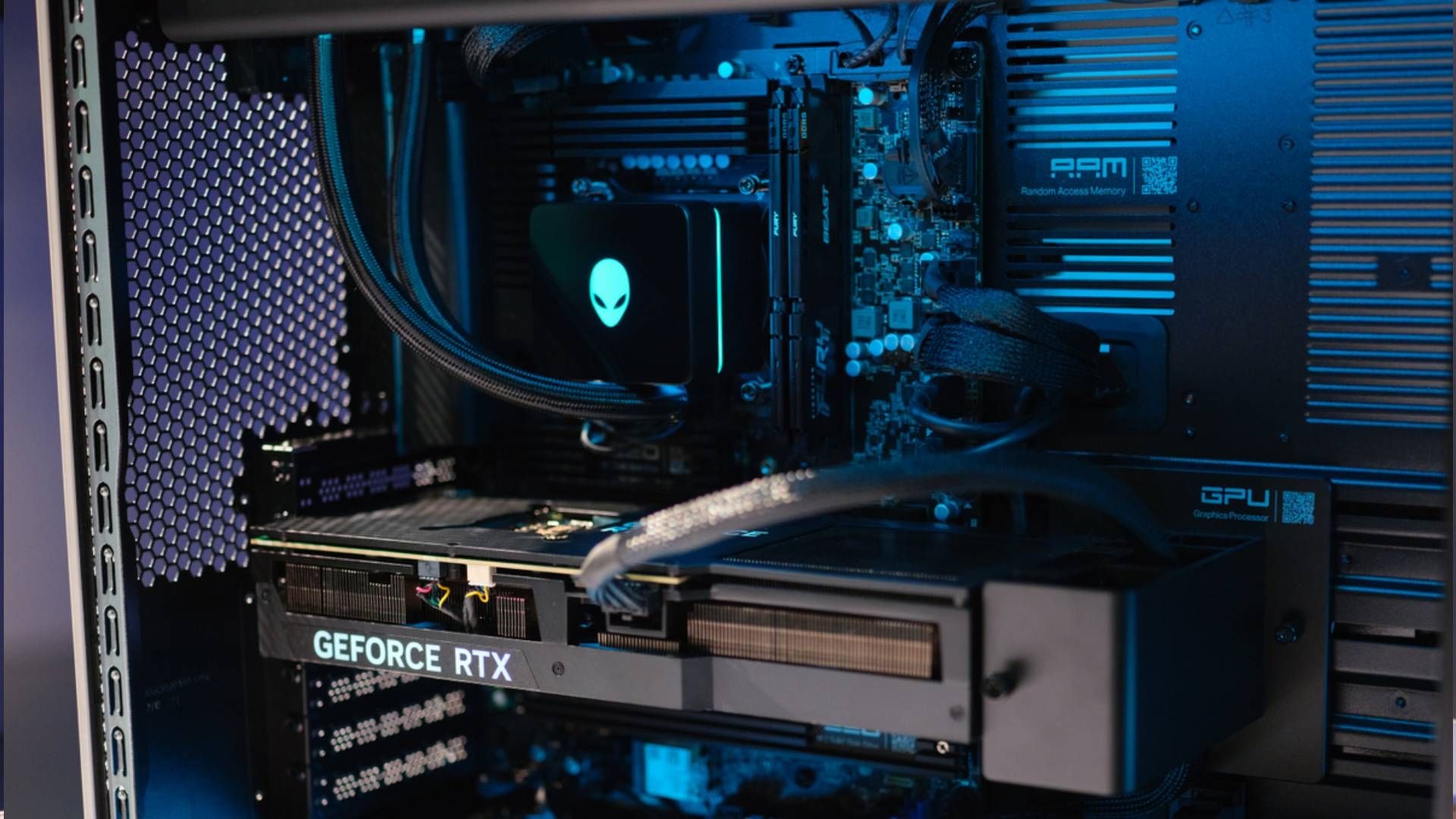Crimson Dragon review: The Dragon escapes from Windows Phone to Xbox One
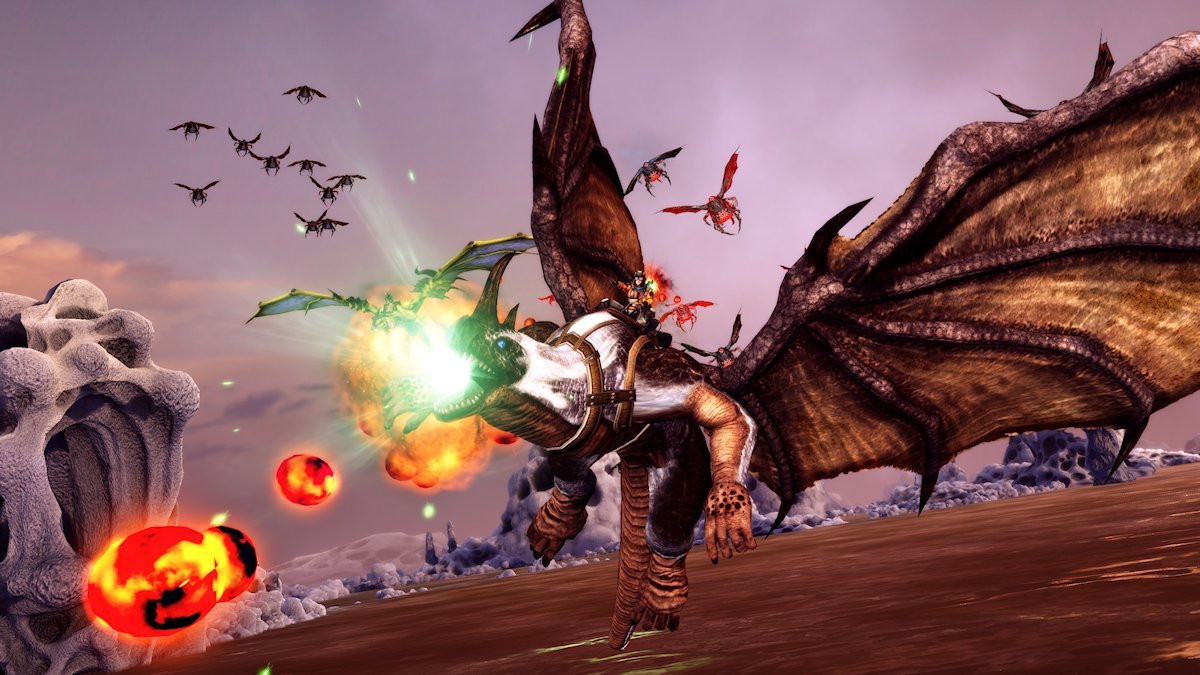
It has been quite a while since Crimson Dragon: Side Story debuted on Windows Phone back in September 2012. Believe it or not, Side Story was originally intended as the follow-up to an Xbox 360 Crimson Dragon title that would have launched earlier that year. Shortly before the (seemingly complete) 360 version’s release, Microsoft delayed it indefinitely. The unofficial but obvious reason? So that Crimson Dragon could be retooled as an Xbox One launch title.
With Crimson Dragon’s long delay and Windows Phone origins in mind, we’ve chosen it as our first Xbox One game to review. Many of the larger console sites reviewed a prerelease version of the game whose difficulty and rewards system differed from the final version of the game. I played through the actual release game, so you can look forward to one of the most accurate and comprehensive reviews around.
The full story
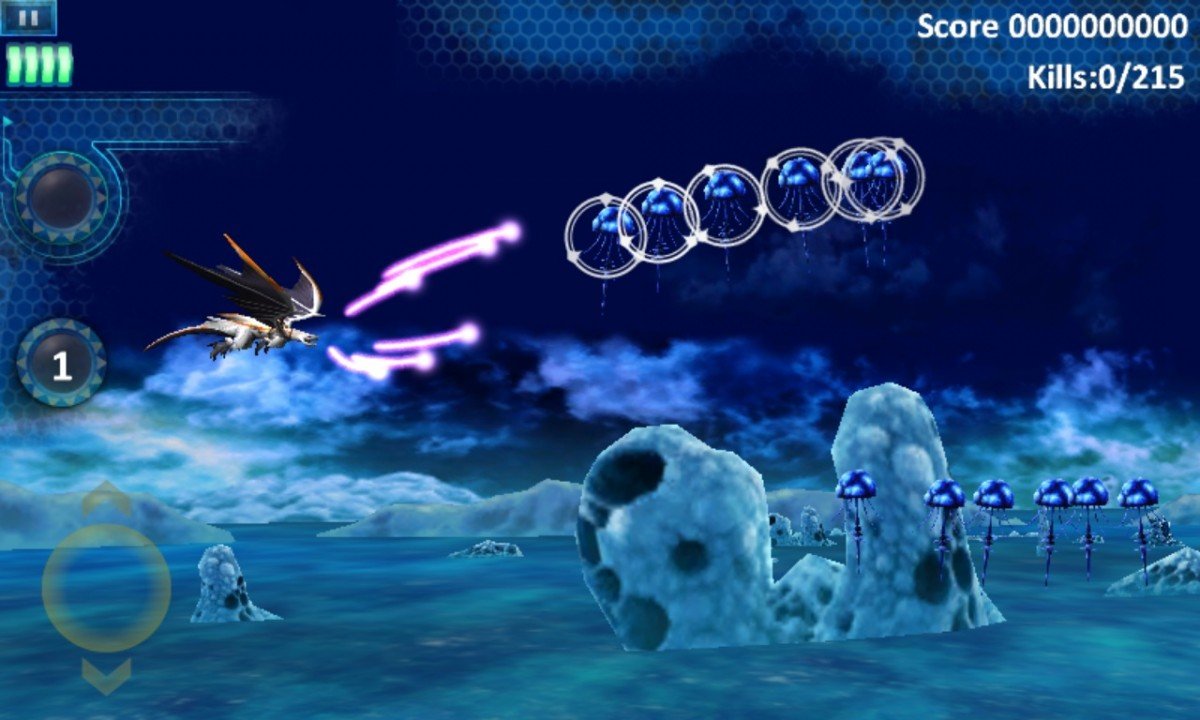
Crimson Dragon Side Story
If you’ve played Side Story, the first thing you’ll probably want to know is how the full game connects to the phone game. Sadly, Crimson Dragon does not provide rewards to Side Story veterans. Both games share many environments, enemies, and other elements, however. Seeing these parts of the phone game brought to life on the big-screen is quite a treat.
Nobody ever praised Side Story for its actual story, and the same will likely apply to the Xbox One game as well. The narrative still takes place on Draco, a planet colonized by humans but completely isolated from Earth. Crimson Dragon seems to take place simultaneously with the phone game, with much of the conflict centering around the colonists’ attempts to stop the spread of a disease called “Crimsonscale.” We actually get to see how Crimsonscale affects humans in this one, providing a more credible threat.
Whereas Side Story’s plot unfolded via a handful of cryptic text passages between missions, Crimson Dragon features fully voiced cinematics both outside of and during gameplay. Sadly, the voice acting is mostly below par, especially the limp narration during the introduction. The story gets developed a little more and involves a few different characters, but still comes across as dry and boring.
The Panzer Dragoon games from which Crimson Dragon draws inspiration gave players a glimpse of a complex and believable alien society. Despite the involvement of several Panzer Dragoon creators, Crimson Dragon’s Draco and its inhabitants just aren’t as real or captivating. Thankfully, Crimson Dragon fares better in the gameplay department…
Get the Windows Central Newsletter
All the latest news, reviews, and guides for Windows and Xbox diehards.
Soaring the skies of Draco
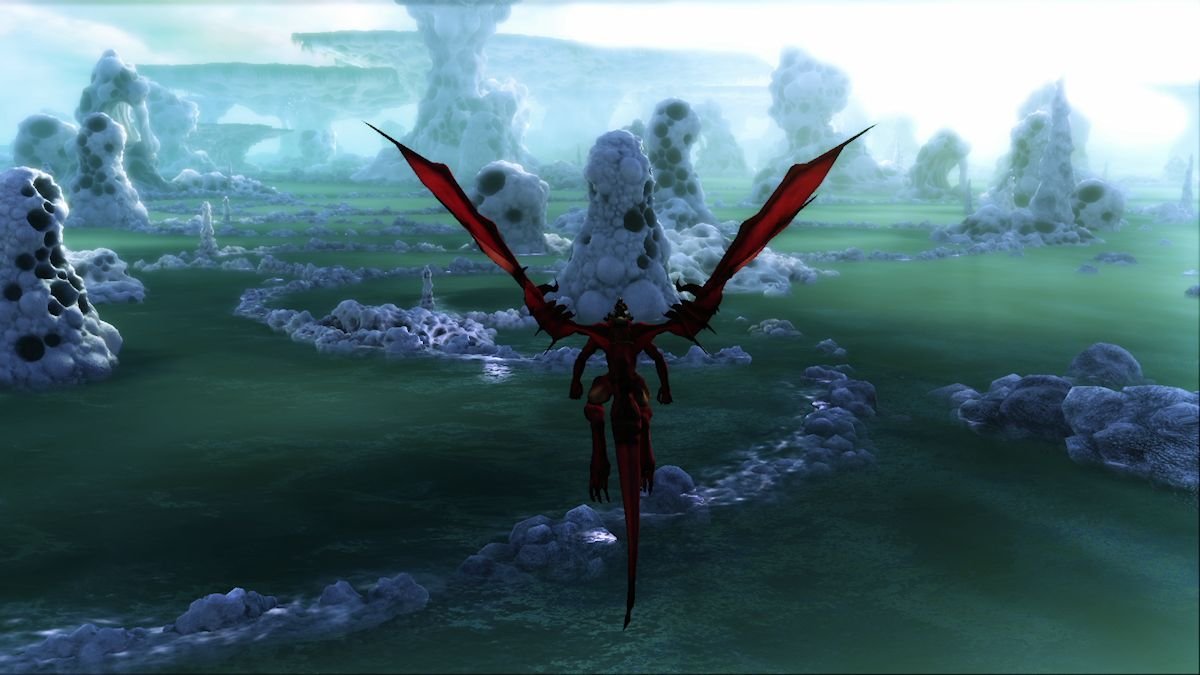
Although Side Story stuck to a strictly side-scrolling perspective, this Crimson Dragon takes place in three dimensions. Being a rail shooter, you generally just worry about shooting and dodging as your dragon flies through the level on its own. Think of it as a shoot-em-up with much more dynamic camera movement.
A few gameplay changes will require adjustment from experienced Panzer Dragoon players. Instead of controlling movement and aiming with a single stick, players move with the left stick and aim with the right. Not a huge deal if you’ve played a game that involved shooting released in the last seven years or so.
Less welcome is the lack of proper camera control. In the Panzer Dragoon games, players could always rotate the camera in 90-degree increments with the shoulder buttons. This game doesn’t let you rotate the camera, which puts you at its mercy. I hate flying past an enemy I barely had time to see and having no more opportunities to shoot it. You get used to it, but Grounding should never have taken the camera control away.
Game structure

Crimson Dragon packs a lot more replay value than you’d find in the rail shooters of yore. Instead of dividing Story and Mission mode as Side Story did, Missions have been wrapped into the campaign mode. Each environment contains several different missions to take on. Enemies, bosses, and flight paths differ from mission to mission.
Missions or levels consist of muliple segments with their own unique objectives like killing all enemies or picking up every data disk. The letter grades received will average out to the final grade for that level. The game displays the top three scores of your friends at the end of every segment and level, providing a little extra encouragement to improve performance.
Players can jump back and forth between two difficulties (Casual and Classic) from the main hub at any time. Casual is much fairer to beginners and well suits the game’s grindy nature. Classic pays slightly more experience and enables three optional side objectives for every mission. Completing these objectives for the first time rewards you with jewels to spend in the shop.
Without a sufficiently leveled dragon, Classic missions can prove frustratingly difficult. Problem is the game gives no indication of a mission’s challenge before you play it. The only useful details on the mission select screen involve a stage’s enemy types and their weaknesses. Simply displaying a recommended dragon level (and perhaps that stage’s rare item drop) would greatly help us to select appropriate missions.
How to train (and collect) your dragons
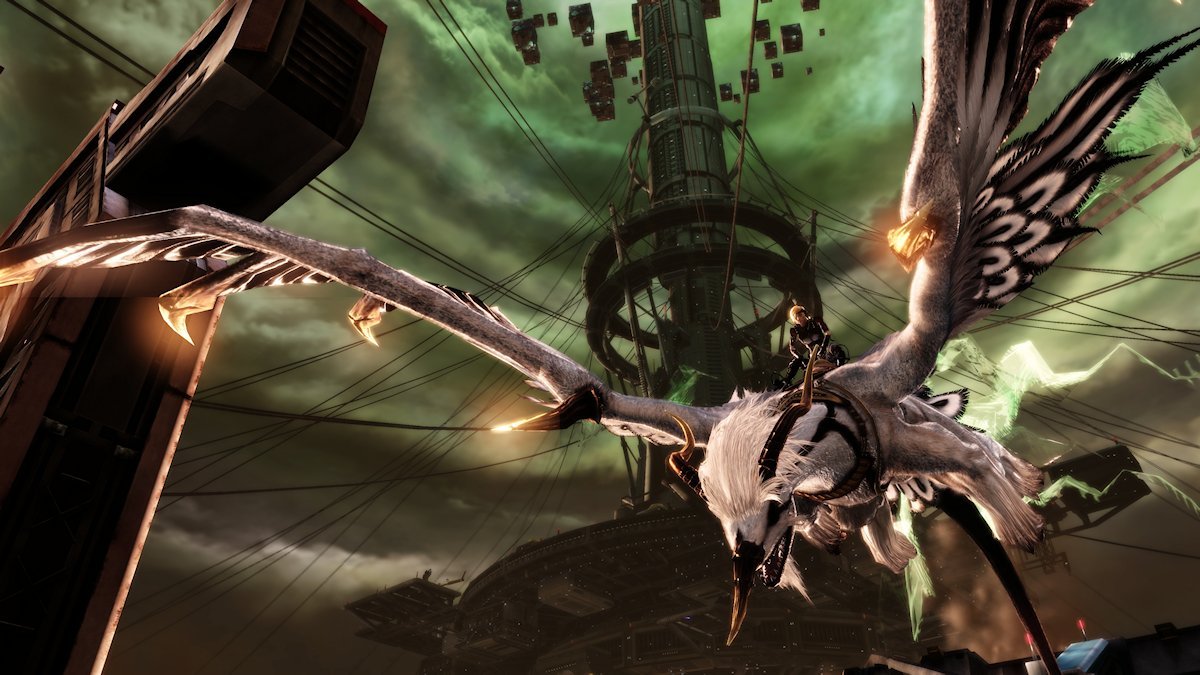
Crimson Dragon asks players to revisit environments and repeat lots of missions. In other words, it’s grindy. Besides earning medals and higher ratings, the main impetus to continue grinding comes from unlocking and leveling up dragons. Instead of being locked to one dragon like in Side Story, players now get to own seven winged beasts at a time.
Dragons earn experience through playing missions and by feeding them experience items found during missions. As you’d expect, leveling up a dragon increases its stats. Dragons at maximum level also gain an improved primary attack. A dragon’s primary weapon can’t be changed, but they can all equip subweapons that enemies randomly drop. Any dragon can be fun to ride, but you’ll likely fall back on the ones whose primary weapons best fit your play style.
You CAN change a dragon’s main weapon attribute to a different element, shifting the enemies that will be weak or resistant to it. Dragons may also be evolved into higher forms. Both operations require items dropped from rare enemies. Annoyingly, the mission select screen doesn’t reveal which stages contain these enemies or their drops, so you’ll need to look them up online or figure them out on your own.
Also problematic: evolutions can’t be reversed. If the player evolves a dragon without having shifted that creature’s attribute, the alternate attribute for the lower form can never be unlocked. Many players would naturally want to collect all the different forms, so that’s a major oversight. Hopefully Grounding will fix this with a patch. Maybe let us switch freely between unlocked attributes while they’re at it?
Wingmen and multiplayer
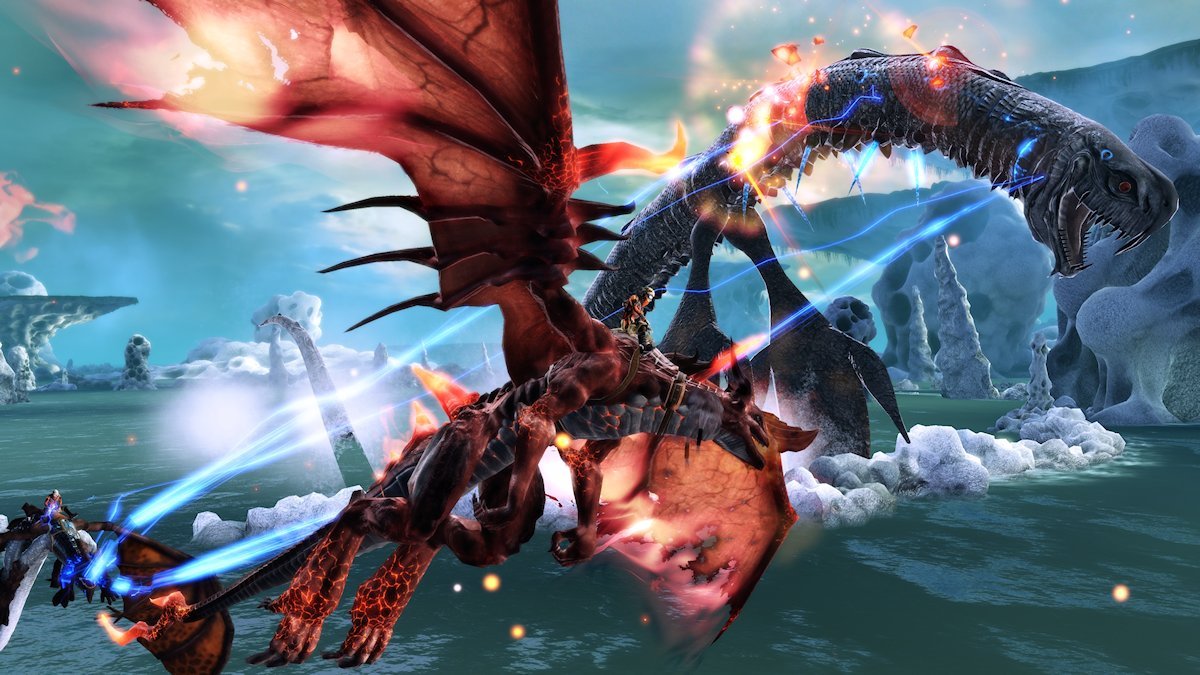
Crimson Dragon was long promised to include 3-player online co-op, but it ended up launching without true multiplayer. According to the in-game community hub, co-op will be patched in sometime this month. We’ll be sure to update when it arrives.
In the meantime, the game does allow players to hire a friend or random player as an AI wingman. You can only choose between four friends and four random players, slightly hindering the feature’s usefulness. But wingmen are generally cheap and useful, so definitely be sure to use their services.
In-App Purchases
Side Story was designed to push players into buying gems (premium currency) with real money. You couldn’t unlock all of the skills or even continue mid-mission without a steady supply of these gems.
This one does still offer gems for sale, in packages ranging from $2-10. But anything that can be bought with gems can also be bought with credits earned from gameplay. If you put some time into leveling up dragons and earning medals, you’ll have more than enough credits before long.
Achievements
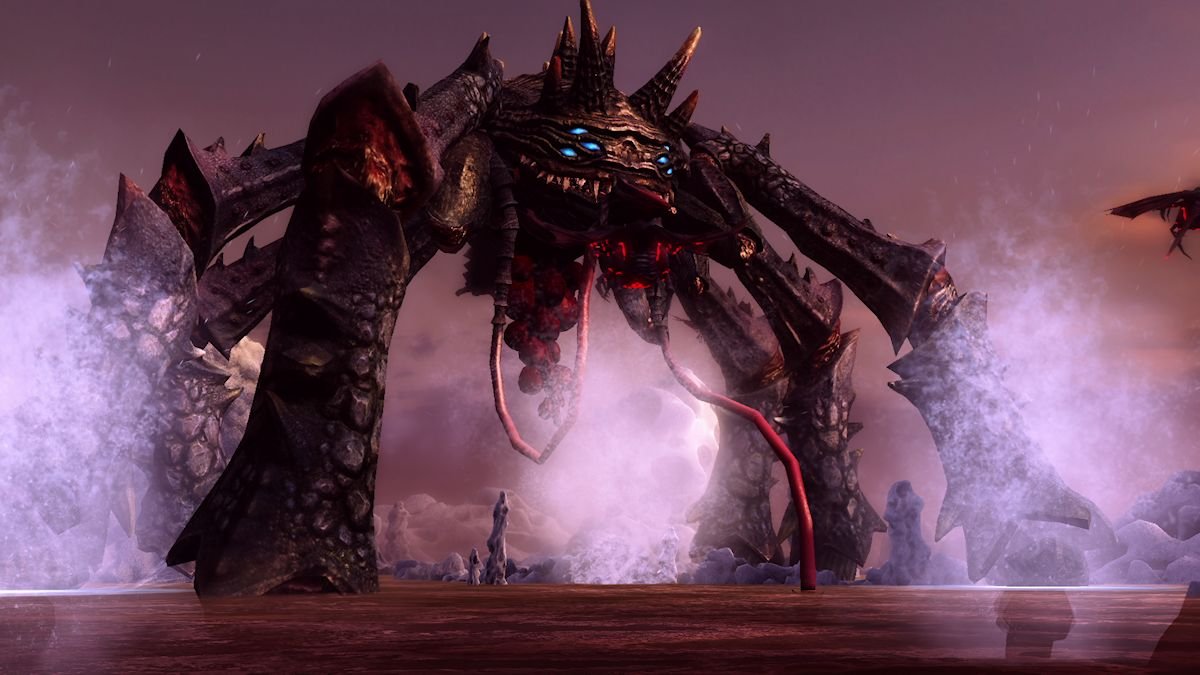
Crimson Dragon has 33 Achievements worth a total of 1,000 GamerScore. Only one will be beyond the average player’s skill level: “Overachiever.”
To get it, you’ll have to earn all of the medals in the game by completing every side objective. Some objectives are extremely challenging, such as beating the level without getting hit or collecting every data disk. Those disks can be tough to see and reach in advance, usually requiring practice and memorization to get.
Overall Impression
Even if Crimson Dragon doesn’t quite live up to the pedigree we’d expect from its creators, it still represents a significant improvement over the original Windows Phone game. It also stands proud as one of the more unique titles in the Xbox One launch lineup. Heck, you won't find another Japanese-developed title in the bunch. Just look at those gorgeous dragon designs and massive boss monsters!
The lovely art direction, addictive mission structure, and fine selection of dragons help make up for a weak story and imperfect camera. If you enjoy niche titles or shoot-em-ups in general, don’t be afraid to take this dragon for a flight.
- Crimson Dragon – Xbox One (download) – 6.88 GB – $19.99 – Store Link
- Crimson Dragon Soundtrack –– 15 tracks – $9.49 – Amazon Link – $9.99 – Xbox Music Link
Paul Acevedo is the Games Editor at Windows Central. A lifelong gamer, he has written about videogames for over 15 years and reviewed over 350 games for our site. Follow him on Twitter @PaulRAcevedo. Don’t hate. Appreciate!

